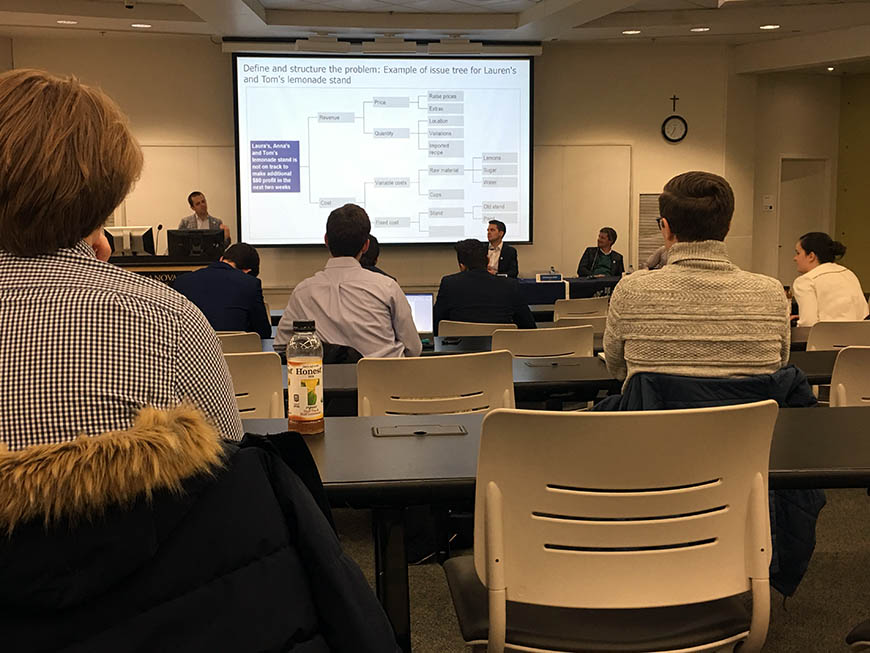Applying an Engineering Degree to Consulting
by Griffin Davis ’22 EE

On February 19, a panel of Villanova University alumni and a current Villanova student drew on past experiences and examples to provide their audience with a comprehensive introduction to the consulting industry and its unique interview process. The panel featured mediator Jeff Maurone ’05 CLAS, an associate partner and general manager of Watchtower at McKinsey & Company; Leo Gorgens ’13 ME, summer associate at McKinsey & Company; Scott Nepereny ’00 EE, managing director at Accenture; and Joe Wenger ’19 CEE, who has accepted a position with Accenture after graduation. The main discussion topics included categorizing consulting firms, the breadth of issues consultants analyze, a consultant’s role, and why consulting is a viable start to an engineering career.
Categories of consulting firms include strategy firms, functional specialists, technology/business process outsourcing, and accounting firms. Some of the issues such firms face are the constantly changing regulatory environments, geo-political shifts like Brexit, the rising costs of healthcare, and collapsing commodity prices. However, the simple example of advising the owner of a lemonade stand owner to increase profits was used to introduce unfamiliar attendees to the processes of consulting.
Furthermore, the typical role of a consultant is to solve a company’s problems. To start, the problem must be broken down and framed for the collection and analyzation of data. Once data is collected and analyzed, findings are synthesized in order to develop recommendations for clients. Next, a consultant must be a “thought partner” to their client and convince them to act before they can collaborate, address experts, and coach each other towards a solution.
Considering that engineers are trained to solve problems with creative solutions, consulting can be a perfect fit for a career, or it can serve as a launching pad for other passions. Within consulting, new challenges, companies and industries are addressed every day, allowing for a range of experiences that Nepereny boasted could provide up to two to three times the experience one would receive working in a more concentrated engineering industry. Better yet, many firms allow their consultants to choose the projects they take on, as it increases personal drive to solve their clients’ issues.
If any part of the panel’s discussion interested you, Villanova has a consulting group on campus, and the Career Center features a resource on Handshake called “Management Consulted.”
